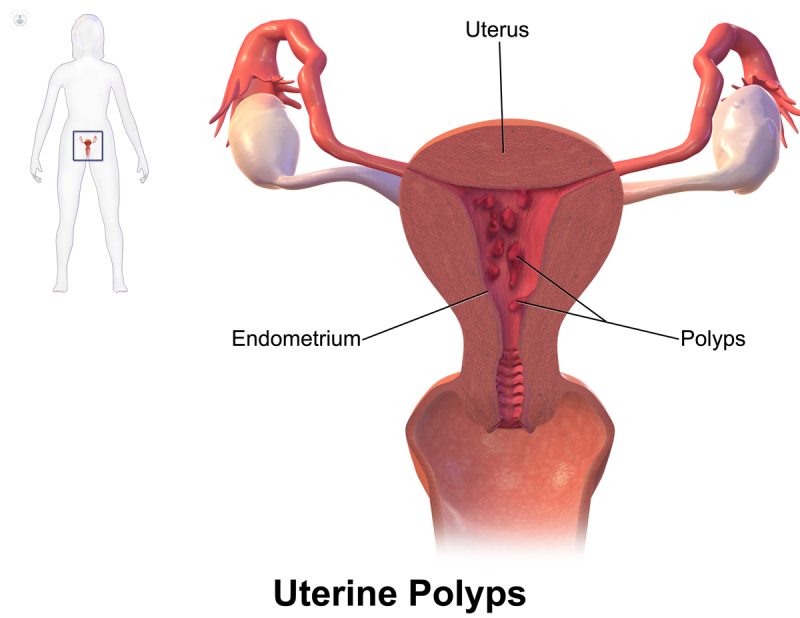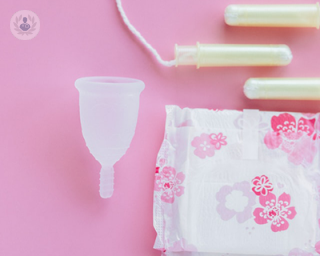Endometrial polyps
Mr Ibrahim Bolaji - Obstetrics & gynaecology
Created on: 11-13-2012
Updated on: 06-29-2023
Edited by: Conor Dunworth
What are endometrial polyps?
Endometrial polyps, otherwise known as uterine polyps, are tissue growths in the inner lining of the uterus. While these polyps are usually benign (non-cancerous), they can sometimes be cancerous or develop to be cancerous.
Polyps can vary in size and shape, and you can also have multiple polyps. Most polyps are contained within the uterus, but on occasion they can also be found coming through the cervix into the vagina.

Polyps can increase the risk of miscarriage in women undergoing IVF treatment, and can also cause difficulties in getting pregnant. If the polyps are removed, it has been suggested this may successfully improve fertility, though data is inconclusive.
What causes endometrial polyps?
While no specific cause of polyps is known, it is believed that hormone levels have some effect on growth, as they are oestrogen-sensitive. This means that polyps may grow in response to oestrogen circulating in the body.
Certain people are also more at risk of developing endometrial polyps, including those who have hypertension (high blood pressure) and those who are obese. Endometrial polyps are also more common in postmenopausal women. Up to 10% of women are estimated to be affected by endometrial polyps.
What are the symptoms of endometrial polyps?
Some polyps may not cause symptoms at all, and some may cause light spotting. However, general symptoms include:
- Vaginal bleeding experienced after menopause
- Irregular bleeding (e.g unpredictable periods)
- Bleeding between periods
- Excessive periods (e.g very heavy)
- Infertility
How are endometrial polyps treated?
Some polyps resolve on their own, meaning your doctor may recommend ‘watchful waiting’. This means the polyps are monitored but they are not immediately treated, to see if they go away on their own.
If treatment is necessary, then you may be prescribed medication. Hormonal medication may help to reduce symptoms, but generally medication is a short-term solution and the polyps may return if you stop taking it.
Your doctor may recommend surgical removal of the polyps. A hysteroscopy, where an endoscope (a long thin tube with a camera and light on the end) is inserted can help in both the diagnosis and treatment of uterine polyps.
Which specialist treats endometrial polyps?
Obstetricians and gynaecologists are the specialists who treat endometrial polyps and perform surgery to remove them.














